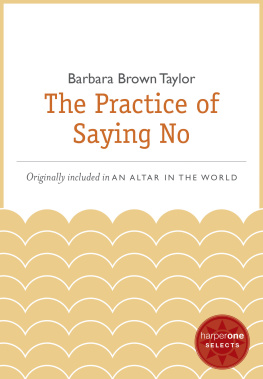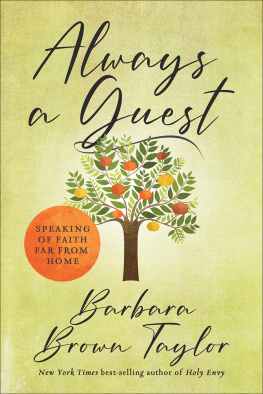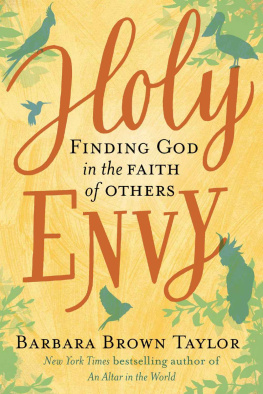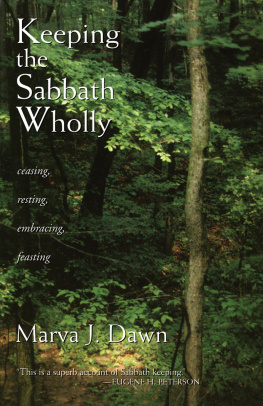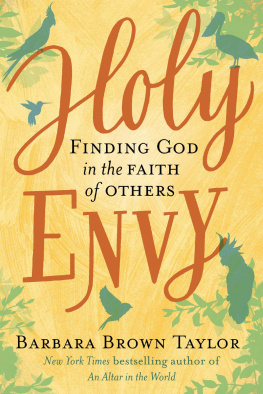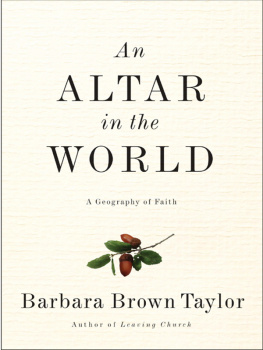God is not found in the soul by adding anything but by subtracting.
Meister Eckhart
A few years ago the bestseller list included a book on leadership called Getting to Yes. I think it was about moving from win-lose situations to win-win situations in which everyone involved had an easier time getting to yes. The title appealed to me enough to buy the book, although I never read it. Getting to Yes was such a positive concept that even seeing it on my bookshelf cheered me up. Yes is one of those words capable of changing a life through the utterance of a single syllable.
Yes, I want the job.
Yes, I will marry you.
Yes, it is my desire to be baptized.
At least part of the pleasure of saying yes is knowing that someone wants youwants to be with you, wants you to do something that you do well, wants to do it with you. Saying yes is how you enter into relationship. It is how you walk through the door into a new room. It is how you create the future.
This may account for the seductiveness of the word, especially in a can do culture where the ability to do many things at high speed is not only an adaptive trait but also the mark of a successful human being. As much as most of us complain about having too much to do, we harbor some pride that we are in such demand. We admire people who are able to keep more balls in the air than we are, and when they drop one we instinctively avert our eyes. We feel their pain.
Meanwhile, technology opens up more opportunities than ever to say yes. Messages from high school friends you have not seen in thirty years show up in your inbox. They found you through Google and are eager to be back in touch. Political action groups want you to sign and circulate petitions for very good causes. People at work send you links to their blogs or invite you to join their circle of friends on MySpace. You cannot even sign on to Amazon.com without being shown the covers of some books that you may like based on your previous purchases.
For these reasons and more, it is difficult to find many advocates for the spiritual practice of saying no.
No, I want to stay home tonight.
No, I have enough work for now.
No, I have all the possessions I can take care of.
Depending on your temperament, your cultural conditioning, and your circle of friends, negations like these can sound like death wishes. If there is nothing more you want to do or have, then why go on living? If you are going to say no to perfectly good opportunities for adding more to your life, then what is the point?
Maybe you have to be really, really tired before you can answer questions like those. Maybe you have to be deeply discouraged by never having time for all the things that need doing in this worldnot just the important things, like spending time with the people you love, taking care of your health, and engaging in purposeful work (paid or unpaid) that gives you a chance to participate in the repairing of the world, but also the minor but nonnegotiable things, like keeping up with the laundry, getting your oil changed, stocking the refrigerator with something other than fat-free yogurt and frozen pizza, remembering to send in your quarterly estimated tax payments, getting your teeth cleaned, taking the cat to the vet for her annual shots, and changing the sheets on your bed before they develop brown images of your sleeping body on them like those pictures of people caught in the lava of Vesuvius.
Since you are reading this right now, it is possible that you are not this busy, or perhaps you have found time to read by pushing something else aside, so that you will be even busier tomorrow. Or maybe you are one of those people who has to hide the fact that you are not all that busy, since being busy is how our culture measures worth.
Someone just told me that in China, the polite answer to How are you? is I am very busy, thank you. If you are very busy, then you must be fine. If you have more to do than you can do, and the list never gets done but only longer, then you must be very fine, because not only in China but also right here at home, successful people are busy people. Effective people are busy people. Religious people are busy people. For millions and millions of people, busy-ness is The Way of Life.
How are you?
Busy like crazy, but what else is new? And you?
Some busy people cannot even tell the difference between relaxation and narcolepsy, because the minute they sit down in a quiet place alone, they nod off. If it happens while you are reading this, please, do not think a thing about it. I know you do not sleep well. It does not make any sense, since you are exhausted, but the fact is that it is very hard for your body to go from fifth gear to off just because you say soat least not without a little pharmaceutical help. It is hard to watch the eleven oclock news with your heart wide open, letting in the misery of neighbors near and far, and then sleep soundly through the night. It is hard to dream rejuvenating dreams or sink into those deep-sea delta brain waves when you keep waking up at three oclockwhat is it about that hour?to think about how many unanswered e-mails you have in your inbox, how much money you owe on your credit cards, or how odd your heartbeat sounds all of a sudden. Did it always give that little flip at the end, like a small, beached fish in the middle of your chest? Never mind. What kind of stove would you buy if you could have any kind of stove you wanted? An Aga? A Thermador? A Viking?
And there was evening and there was morning, the seventh day.
W hen you live in the desert, where the sand is so hot it can melt your flip-flops, your day begins when the sun goes down. Your day begins when the air cools, and the breeze stirs, and the little bit of water in the air turns into a fine mist that you can feel on your upper lip, as if the evening had been poured into a goblet for you to drink. When you live in the desert, working twice as hard as people who do not, to lead your flock to food, and water, and shade, your day begins when they all lie down, no longer interested in following you but only in murmuring to one another until they can fall asleep and graze fields of clover in their dreams. Your day begins when you too can lie down by the fire, with nothing to do but trade tales with the others, or play a tune on your reed flute while the children watch for shooting stars over all your heads.
And there was evening and there was morning, the seventh day.
T he great Swiss theologian Karl Barth once wrote, A being is free only when it can determine and limit its activity. By that definition, I have a hard time counting many free beings among my acquaintance. I know people who can do five things at once who are incapable of doing nothing. I know people who are able to decide what to do without being able to do less of it. Since I have been one of those people, I know that saying no is a more difficult spiritual practice than tithing, praying on a cold stone floor, or visiting a prisoner on death rowbecause while all of those worthy activities may involve saying no to something else so that I can do them instead, they still amount to doing more instead of less. Limiting my activity does not help me feel holy. Doing more feels holy, which is why I stay so intrigued by the fourth commandment.
Remember the Sabbath day and keep it holy. Six days you shall labor and do all your work, but the seventh day is a Sabbath of the L ORD your God: you shall not do any workyou, your son or your daughter, your male or female slave, or your cattle, or the stranger who is within your settlements. For in six days the L ORD made heaven and earth and sea, and all that is in them, and He rested on the seventh day; therefore the L ORD blessed the Sabbath day and hallowed it.

